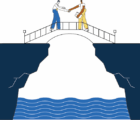 There is no doubt that COVID-19 is affecting each of us both personally and professionally. At this point, we likely all know someone whose health has been impacted by the virus or someone who has lost their job as a result of the changing economic environment. We all know (or we may be those people) who are struggling with the uncertainty of at-home education and when schools may open. Needless to say, things are tough, and uncertainty abounds.
There is no doubt that COVID-19 is affecting each of us both personally and professionally. At this point, we likely all know someone whose health has been impacted by the virus or someone who has lost their job as a result of the changing economic environment. We all know (or we may be those people) who are struggling with the uncertainty of at-home education and when schools may open. Needless to say, things are tough, and uncertainty abounds.
The staff and volunteer leaders of the Casualty Actuarial Society continuously put our members’ and candidates’ well-being as our number one priority. The CAS canceled the Ratemaking Product and Modeling Seminar (RPM) in March and has transitioned other major meetings such as the Spring Meeting and the Seminar on Reinsurance to be fully virtual. The CAS provided early clarity on canceling the Spring CAS examinations and has arranged for the full suite of examinations to be offered this fall and in the spring of 2021. The CAS is also providing new virtual education and opportunities to students who may have lost their internships this summer.
The CAS Staff, Board and Executive Council have not lost a beat during these times and are continuing to advance both strategic and operational imperatives that will position us for future success. Despite the curveballs thrown at the CAS from COVID-19, we remain a financially strong and determined organization with an active board of directors refreshing our strategic plan, and our new CEO, Victor Carter-Bey, making internal changes in the office to align the organization to be equipped to handle the challenges and opportunities of the future.
COVID-19 has also brought forward some great innovation and utilization of technology that will benefit both the CAS and the actuarial profession going forward. Disruption certainly forces organizations and individuals to become more resourceful, creative and resilient, and the disruption from COVID-19 is profound. We have all learned the power of empathy and emotional intelligence over the past few months. We have also learned the power of digital transformation (e.g., switching focus from product to customer; implementing new technology and enabling telework; and contending with issues of data security, privacy and ethics). All of these “outputs” from COVID-19 disruption will have lasting impacts on how the Casualty Actuarial Society and the actuarial profession operate going forward.
The CAS Staff, Board and Executive Council … are continuing to advance both strategic and operational imperatives that will position the CAS for future success. Despite the curveballs thrown at the CAS from COVID-19, the CAS remains a financially strong and determined organization….
Another observation during the last few months has been the importance of professional and well-communicated models (in this case, epidemiological models). The “flatten-the-curve” dialogue alone is a case study in the importance of data visualization and how to take a responsible approach to data and analytics. The parallels to property-casualty risks are obvious and highlight the skill sets that CAS actuaries can bring forward: using data responsibly, conveying highly technical concepts in layman’s terms, using a chart that can say more than words ever can. This is powerful storytelling.
In conclusion and as a small call-to-action, I would like to ask all of you reading this to reach out to a CAS member (or future member) that perhaps you have volunteered with on a committee or worked with in a prior job or even someone you don’t know at all. Simply call or write to say, “Hi,” and check in with them personally and professionally. The CAS is also working to create ways for our members and actuarial professionals to connect, including virtual meetings and seminars, which we hope will prompt many to reach out on their own to connect with colleagues.
The CAS is a small and powerful community, and I am convinced that with a small effort to stay connected, we can be a stronger community after COVID-19 than we were before it.
Be well and be safe.











